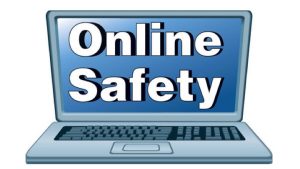Online Safety
The Saint John Police is raising public awareness around online safety. It is important to be aware of the emerging issues and how to protect yourself. As back-to-school approaches, parents should also discuss online safety with their children.
What to know?
Cyberbullying
Cyberbullying is an extreme form of bullying among youth through technology. It is abusive, targeted, deliberate and repeated behaviour intended to harm another person. Sometimes sexual images and videos are created and distributed as a form of bullying.
Online Luring
Online luring commonly refers to the process through which someone with a sexual interest in children prepares a child for future sexual contact. The Criminal Code (Canada) defines a luring offence as someone using telecommunications (e.g., chat, messaging, texting) to communicate with someone they believe to be under the age of 18 years in order to commit a designated offence against that child.
Sexting
Self/peer exploitation (also known more generally as “sexting”) refers to creating, sending or sharing sexual images and/or videos with peers online or through electronic devices.
Intimate Images
The non-consensual distribution of intimate images refers to the sharing of an “intimate” image or video of another person without their consent. If the image or video involves someone under 18, it is illegal to distribute regardless of whether consent was provided.
Sextortion
Sextortion involves individuals coercing others into sending sexual images or engaging in sexual acts via a camera-enabled device. These individuals then blackmail by threatening to distribute the sexual images or videos if the person does not provide more or pay them. The use of live-streaming services has increased the vulnerability to this type of exploitation because people can be recorded without their knowledge and then blackmailed.
What to do?
- Assume everything you post is public and permanent.
- Protect your passwords and don’t share them with anyone.
- Question what you see online. People can lie about almost everything.
- Do not communicate with someone unless you know their true identity.
- Don’t say anything online that you wouldn’t say in real life.
- Be careful with camera-enabled devices as anyone can capture and save images.
- Check your privacy settings on social media.
- Don’t answer mean messages online. Block the person and report it if it keeps happening. Tell a safe adult.
- Talk to a parent or adult before meeting an online friend. Make sure someone knows who and where you are meeting.
- Parents should monitor their children’s activity online and use parental controls to set limits on the use of devices.
For more information, visit Resources & Research: Online Safety – protectchildren.ca
Together a safe, secure, healthy community
For more news, visit Saint John Police Force | City of Saint John, New Brunswick

